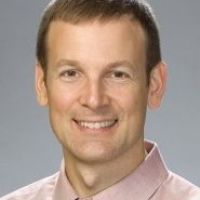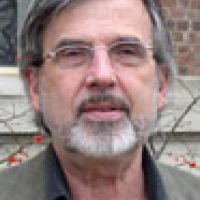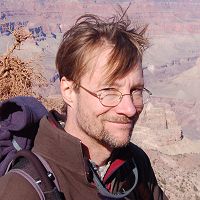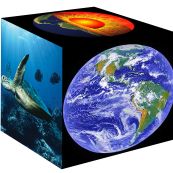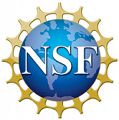EarthCube-CZO Workshop
WEBINAR | MEETING/CONFERENCE | EDUCATION/OUTREACH
EarthCube Domain Workshop: Engaging the Critical Zone community to bridge long tail science with big data
University of Delaware, Newark, DE
-
Christina, INVESTIGATOR
-
Shale Hills, INVESTIGATOR
-
Boulder, INVESTIGATOR
Links
View Workshop Products in Google Drive!
The CZ-EarthCube Google Drive Collection contains our Executive Summary, Breakout Group Notes, Presentation PDFs, Poster PDFs, and our complete workshop proposal.
Conveners & Organizing Committee: Anthony Aufdenkampe, Chris Duffy, Greg Tucker. Kerstin Lehnert, Ilya Zaslavsky, David Tarboton, James Syvitski, Jeff Horsburgh, Emilio Mayorga, Susan Gill.
Participants: Any critical zone scientist or cyber scientist interested in a future cyber-infrastructure that meets the needs of all earth surface sciences.
Learn more
- Workshop Overview
- Agenda, Invited Speakers & WebEx Info
- Breakout Group Themes and Organization
- Registration & Travel Information for Participants
- Broader Impacts
Workshop Overview
Critical Zone (CZ) scientists take as their charge the effort to integrate theory, models and data from the multitude of disciplines studying processes on the Earth's surface - from the atmosphere at the vegetation's canopy to the lower boundary of actively cycling ground waters. As such, critical zone scientists and their data managers are at the front line of efforts to effectively compile and use the "dark data in the Long Tail" of earth science and integrate that data with the "Big Data" produced by hydrologists, atmospheric scientists, geospatial modelers and molecular biologists.
The 16 CZO disciplines span the range from Big Data to Long Tail science, and have begun the process of building a community infrastructure that can serve as a pilot for the EarthCube endeavor.
The NSF EarthCube initiative aims to transform the conduct of research through the development of community-guided cyberinfrastructure to integrate information and data across the geosciences. NSF EarthCube is funding a series of workshops "designed to listen to the needs of the end-user groups that make up the geosciences and to understand better how data-enabled science can help them achieve their scientific goals."
This is our EarthCube workshop, convened to engage 45 cyber-literate critical zone scientists in the EarthCube process and to inform about 20 of EarthCube's cyberscientists of the diversity needs of CZ science.
The overall goal of the workshop is to develop a set of unifying requirements for the integration of "long tail" data and "big data" and to develop an interactive community of domain and cyber scientists to pursue solutions. After the opening evening and morning of invited talks introducing the various needs and capabilities of represented geo- and cyber-science communities, participants will break out repeatedly into four groups to discuss and produce draft documents that will contribute to each of the five specfic workshop outcomes:
- List of important CZ-science questions or challenges the CZ-community would like to tackle with 5-15 years;
- List of data and cyber-infrastructure constraints to those questions and challenges;
- List of all known community data and modeling resources, starting with EarthCube's draft inventory;
- List of data and cyber needs to be developed to tackle our important science and education challenges;
- Develop four use case scenarios for major grand scientific challenges the CZ-community.
Breakout group lists will be briefly presented at the end of each breakout session and collated in near-real time using Google Docs, and thus accessible by all breakout groups for subsequent rounds of discussion. A workshop report will be redacted from these documents, summarizing all workshop findings.
All participants are encouraged to present a poster to share current work and/or ideas on:
- critical zone science that will be constrained by data and cyber-infrastructure,
- cyber-infrastructure projects that are begining to meet those challenges.
Agenda, Invited Speakers & WebEx Info
WebEx virtual meeting rooms connection information for the Plenary and each of the four breakout rooms. Browse WebEx meeting rooms for Plenary & Breakout Group A, or for Breakout Groups B, C, G. Gain access with "criticalzone". Links are also within the agenda below.
Monday, January 21, 2013 - in banquet hall of Courtyard Marriott Hotel of the Univ. of Delaware
5:30 pm Registration & cocktails
6:00 pm Dinner
6:45 pm Opening Presentations - in banquet hall during coffee/dessert. WebEx Welcome.
- Anthony Aufdenkampe, Christina River Basin CZO Co-lead PI. "Welcome & Workshop Vision."
- Barbara Ransom, NSF GEO EarthCube Lead. "Overview of EarthCube."
- Susan Brantley, Shale Hills CZO Co-lead PI. "Critical Zone: Science Challenges and Cyber Opportunities."
8:30 pm Conversation & cocktails. Cash bar closes at 9:00 pm, room closes at 9:30 pm.
Tuesday, January 22, 2013 - Clayton Hall Conference Center
8:00 am Continental breakfast & poster setup
8:35 am Introductions of Participants
9:00 am Invited presentations by geoscientists on major scientific challenges, present data & cyber constraints and opportunities. WebEx Plenary.
- Chris Duffy, Penn. State Univ. "Observatory Science and Big Data: The Challenge of Scaling Up from Testbeds to Global Networks."
- Cliff Riebe, U. Wyoming. "Looking Deep, Beyond the Average, and Into the Future of Surface Processes Research."
- Roy Haggerty, Oregon State Univ. “Let There Be Light: Using Dark Data from the Long Tail for Coupling the Critical Zone to the Earth System at River Basin Scales.”
10:45 am CZ Community Survey Results, Joel Cutcher-Gershenfeld, Univ. of Illinois. WebEx Plenary.
11:05 am Break & Posters
11:35 am Invited presentations by cyberscientists on how EarthCube activities might serve geoscientists. WebEx Plenary.
- Kerstin Lehnert, IEDA. "Advancing Long Tail Data Capture and Access Through Trusted, Community-Driven Data Services."
- Ilya Zaslavski, SDSC. "101 of Interoperability: Multi-Data Approaches for Multi-Disciplinary Geosciences"
12:45 pm Lunch
1:45 pm Invited presentations by cyberscientists, continued.
- James Syvittski, CSDMS. "CSDMS insights for “Plug and Play” model-data coupling as an aid to interdisciplinary Critical Zone cyberinfrastructure."
2:15 pm Breakout Session 1: List scientific challenges for next 5-15 years. WebEx A, B, C, G.
3:15 pm Break & Posters
3:45 pm Breakout Session 2: List data & cyber-infrastructure constraints. WebEx A, B, C, G.
4:30 pm Breakout Session 3: Review list of community data and cyber resources. 30 min. WebEx A, B, C, G.
- Review and append draft lists of existing Data System Components >> & Models >>. No breakout report presentations for Session 3.
5:00 pm Breakout reports, sessions 1, 2 & 3. 10 min. each. WebEx Plenary.
6:00 pm Dinner
7:30 pm Poster Session and cocktails. Cash bar closes at 9:30 pm, room closes at 10:00 pm.
Wednesday, January 23, 2013 - Clayton Hall Conference Center
8:00 am Continental breakfast
8:40 am Charge to Participants. WebEx Plenary.
- Distributing group C (Cyber-Geo) participants to other breakout rooms for remainder of the day
9:15 am Breakout Groups Session 4: List capabilities required. WebEx A, B, C, G.
10:30 am Break & Posters
11:00 am Breakout Groups Session 5: Develop Scenarios. WebEx A, B, C, G.
12:30 pm Lunch
1:15 pm Breakout reports, sessions 4 & 5. 15 min. each. WebEx Plenary.
2:15 pm Synthesis and Outline of Next Steps. WebEx Plenary.
3:30 pm Adjourn
Afternoon Organizing Committee Report Writing
Breakout Group Themes and Organization
Outcomes will be collaboratively developed in real-time via Google Docs, which will be shared by everyone so that participants can also simultaneously add notes to the same document. Each breakout room will have a projector for live note taking and WebEx for virtual participation. Each group will led by two co-facilitators and a lead a note taker and supported by a projectionist/WebExista.
Breakout groups will be organized around broad disciplinary themes, but with the charge to consider each topic as it applies:
- within the discipline
- across disciplines within the geosciences
- across disciplines outside the geosciences, including outreach & education
Participants will self-select which group they want to participate in, but with guidance to balance group numbers.
Group themes
A. Aquatic - Room 121
-
Disciplines
- Climatology / Meteorology
- Hydrology
- Water Chemistry
- Facilitators: Jeff Horsburgh & Chris Duffy
- Note Taker: Adrian Harpold. Group A Notes >>.
- WebExista: Heather Brooks. Group A WebEx >>. Gain access with "criticalzone".
B. Bio - Room 122
-
Disciplines
- Biogeochemistry
- Biology / Ecology
- Biology / Molecular
- Facilitators: David Tarboton & David Arscott
- Note Taker: Eve-Lyn Hinkley. Group B Notes >>.
- WebExista: David Arscott. Group B WebEx >>. Gain access with "criticalzone".
C. Cyber-Geo - Room 123
-
Disciplines
- Geophysics
- GIS / RemoteSensing
- Modeling / Computational Science
- Engineering / Method Development
- Facilitators: Emilio Mayorga & Ilya Zaslavsky
- Note Taker: Raleigh Martin. Group C Notes >>.
- WebExista: Steve Hicks. Group C WebEx >>. Gain access with "criticalzone".
G. Geo - Room 124
-
Disciplines
- Geochemistry / Mineralogy
- Geology / Chronology
- Geomorphology
- Soil Science / Pedology
- Facilitators: Greg Tucker & Kerstin Lehnert
- Note Taker: Diana Karwan. Group G Notes >>.
- WebExista: Beth Wenell. Group G WebEx >>. Gain access with "criticalzone".
Registration, Travel and Other Information for Participants
Registration open for virtual participation! Registration for in-person participation closed on Sunday, January 6, 2013.
If you have registered, please remember to:
- Join the Critical Zone EarthCube Domain Group, a Google Group that we'll use for workshop communications and to grant editing privileges to a Google Docs collection of workshop documents.
-
Submit a poster title and abstract, to share your current work and/or ideas on:
- critical zone science that will be constrained by data and cyber-infrastructure
- cyber-infrastructure projects that are begining to meet those challenges.
- Fill out the pre-meeting survey.
- Plan to bring a laptop, tablet or smart phone with the knowledge on how to effectively use Google Docs (also Shared Collections).
Venue: The workshop will primarily take place at the University of Delaware's Clayton Hall Conference Center. Opening evening events and participant lodging will be across the street at the Courtyard Marriott Hotel of the University of Delaware.
Lodging: The Courtyard Marriott Hotel of the University of Delaware.
- All on-site costs registration, meals and lodging costs will be covered for all participants for the 2.5 day workshop.
- Your hotel reservation will be made for you based on your selections on the online registration form, and confirmed via email in early January.
Travel: General directions to University of Delaware's Clayton Hall Courtyard Marriott Hotel.
-
By Air:
- Fly to Philadelphia International Airport (PHL, 45-60 min drive). Take the Delaware Express Shuttle Service or rent a car, using this link for a discount.
- Alternately fly to Baltimore Washington International Aiport (BWI, 75-90 min drive). The only ground transport from BWI is by renting a car.
- By car: The Clayton Hall is on the north side of campus, just a few minutes from I-95. Follow these driving directions.
- Travel costs will be will be reimbursed for speakers, early-career scientists and possibly others. Please make reservations on your own and save receipts for reimbursement shortly after the workshop. Please contact us if floating this expense until then would present a challenge, and we can purchase tickets for you.
Broader Impacts
There are many examples of how cyber-infrastructure developed for geoscientists have broader impacts to the public. The national weather service data and model forecasts are highlighted on television and other media outlets. Fishermen, rafters and canoeists rely on USGS gauging data for their recreational activities. The Model My Watershed platform is harnessing GIS and hydrological modeling for educational purposes in classrooms and informal settings and also by citizen scientists.
Publications
2012
NSF Proposal: EarthCube Domain End-User Workshop: Engaging the Critical Zone community to bridge “long tail” science with big data. Aufdenkampe, A.K.; Duffy, C.J.; Tucker, G.E. (2012): NSF Award #1252238
2012
Data Infrastructure for the Critical Zone Observatories CZOData: an EarthCube Design Prototype. Zaslavsky, I., M. Williams, A. Aufdenkampe, K. Lehnert, E. Mayorga, J. Horsburgh (2012): EarthCube white paper
Explore Further
